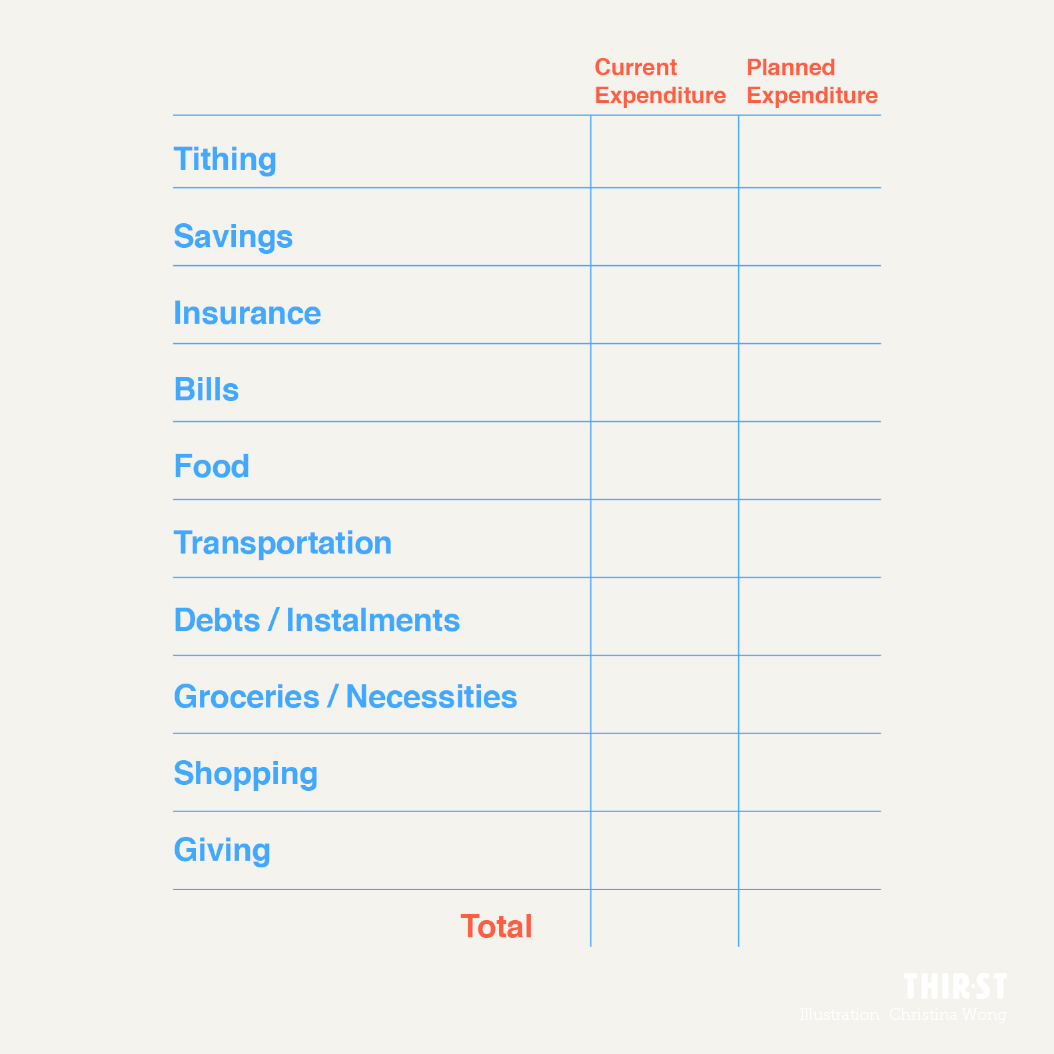“You’re a fresh grad. You should be able to commit to at least $300 a month to this savings plan.”
I stared blankly at my financial planner as she continued to ramble on with her graphs and numbers — my head was spinning. She asked me if I had a savings plan, or if I was planning to start one soon: “You’re not that young, you should really have a savings plan.”
A $300 monthly commitment sounded scary to me, but I was afraid to voice out my fear to her. She made it sound like any other fresh grad would be able to commit to that amount easily.
I got a little upset. Not with her … But with myself. I wanted to be able to agree to that $300 as easily and coolly as she did.
Why did I feel so poor?
LOVING MONEY KILLS
Just the other day, my friend was telling me about fearing life after graduation. He told me he desires to go into full-time ministry, but he has other things to consider. As the only child, he has ageing parents to support and wants to be financially ready for marriage in a few years. And while he’s still doing an internship now — many of his peers have already secured a full-time job.
I really want to serve God full-time, but money is this other big thing …
It wasn’t as though his concerns weren’t valid. But the reality is feeling poor doesn’t stop once we start earning a keep that we think is good enough. It doesn’t go away — it’s never going to be enough.
You might not be as rich as you thought you’d be by now, but that’s nowhere near as important as storing up treasures in heaven.
The more you have, the more you want. And more often that not, feeling poor stems from a place of discontentment and dissatisfaction.
I don’t think I’m being paid enough. I think I deserve a higher pay. Other people are doing better than me.
It all hinges on comparison from a point of reference in our minds. So we salivate over our fantasies of wealth, not realising they will also kill us (1 Timothy 6:6-10).
I think John Piper puts it best: “The love of money is suicidal. Jesus said it. Paul also said it. And Judas proved it (John 12:1–8).”
WANT ≠ NEED
Recently I went for a number of surgical procedures which amounted to a few thousand dollars.
Unfortunately, the nurse made a mistake with my Medisave claim which I was only informed of months later — I would have to pay the full amount in cash.
It wasn’t even my fault! When I found out, I immediately began doing the mental sums. Just a week before this happened, I had booked my air tickets for a missions trip. So literally nothing went into my savings for that month. My wallet was bleeding, as was my heart.
I poured my heart out to God about my situation. But He had something else to say: “Why are you even feeling this way? I already gave you everything you needed.”
Honestly, it sounded like a platitude. But when I searched my heart, I knew I was looking at things from the wrong perspective – my own. My problem is that I always think that what I want is what I need.
But God already knows what we need. We won’t get everything we want, but we need to trust in the truth that God always provides and gives — and sometimes withholds lovingly (Matthew 6:33).
I wanted a few extra thousand dollars to cover my medical expenses and trip. I failed to see that God had already provided for those amounts beforehand – through my salary. God is our ultimate provider. He does so in ways that go largely unnoticed at times like our salaries, a freelance job or a blessing from a friend.
PLAN FINANCES WISELY
As we trust God to provide for the future, we also need to also be prudent in stewarding what we already have (Matthew 25:14-23). Some months back, my cellgroup member who used to work as a financial planner created a handy chart to help my cellgroup to steward our finances wisely.

“You have to set aside a budget for even the seemingly frivolous things like shopping, because if you don’t you’re only kidding yourself.”
She shared with us that financial planning is only effective when you’re honest with every aspect of your expenditure. It’s also good for us to do a reality check on our finances once in a while to ensure that we’re on the right track.
Create a financial plan that helps you to give generously and save wisely regardless of your circumstances.
DON’T WORRY
Ultimately, nothing that we own is actually ours. Everything comes from and belongs to God, who has graciously provided for us.
I’ve seen money destroy relationships and cause conflicts. I’ve seen how love of money and obsession over it have changed people for the worse.
Money in itself isn’t evil. It can be good as a tool to accomplish things like blessing others or providing your family. But when money becomes your life’s goal, it becomes poison to your soul.
You stay in a job you hate just because it pays well. You make life difficult for yourself and even others just to keep your money. You choose to skip out on life’s milestones so you can hoard more.
Loving money is opposite to having faith in God’s character – trusting in His unending grace and supernatural provision. It is not believing God’s promises. We can’t serve both God and money (Matthew 6:24-25). A heart fixated on money is one that isn’t locked onto who God is and what He has in store for our lives.
Fellow twenty-somethings, you might not be as rich as you thought you’d be by now, but that’s nowhere near as important as storing up treasures in heaven (Matthew 6:20).
Trust in God. He has provided for you and He always will.









